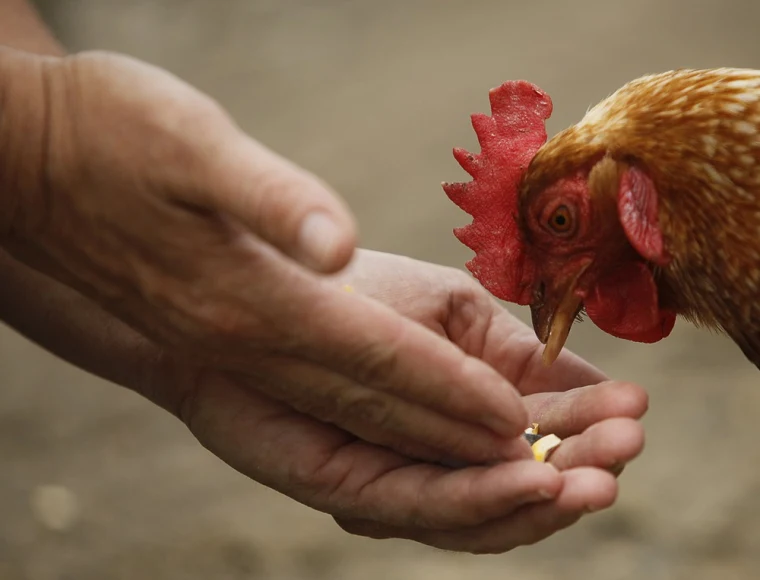
Cluckonomics: How Raising Chickens Can Benefit Your Homestead
In the realm of homesteading, where self-sufficiency and sustainability are paramount, the humble chicken reigns supreme. Beyond just providing a steady supply of fresh eggs and flavorful meat, chickens offer a plethora of benefits that extend far beyond the barnyard. From their knack for pest control to their ability to enrich soil, these feathered friends play a vital role in the ecosystem of any homestead. In this exploration of “cluckonomics,” we’ll delve into the myriad ways in which raising chickens can enrich your homestead experience, and why investing in an extra-large chicken coop with a run can be a game-changer.
Table of Contents
ToggleThe Economics of Clucking
At first glance, the idea of “cluckonomics” might seem whimsical, but for those who’ve embraced the homesteading lifestyle, it’s a term that carries significant weight. Chickens offer a cost-effective means of producing protein-rich eggs and meat, significantly reducing grocery bills over time. Moreover, the byproducts of chicken keeping, such as manure, can be composted to enrich garden soil, thus cutting down on the need for store-bought fertilizers.
Pest Control Partners
Chickens are natural foragers with a keen eye for insects and pests that can wreak havoc on gardens and crops. By allowing chickens to roam freely or providing them with access to garden areas, homesteaders can harness their natural instincts to control pests without the need for chemical interventions. From devouring destructive insects like caterpillars and beetles to keeping slug populations in check, chickens are valuable allies in maintaining a balanced ecosystem on the homestead.
Soil Enrichment Specialists
Beyond their prowess as pest controllers, chickens also excel in soil enrichment. Their constant scratching and pecking behavior aerate the soil, promoting better drainage and nutrient absorption. Additionally, chicken manure, when properly composted, is a potent organic fertilizer rich in nitrogen, phosphorus, and potassium—essential nutrients for healthy plant growth. By integrating chickens into rotational grazing systems or utilizing mobile coops, homesteaders can harness their innate ability to fertilize and rejuvenate soil across different areas of their land.
Sustainable Land Management
One of the core tenets of homesteading is the practice of sustainable land management, and chickens play a vital role in this endeavor. Through rotational grazing and strategic coop placement, chickens can help prevent soil erosion and degradation by maintaining vegetative cover and breaking up compacted soil. Furthermore, their presence encourages biodiversity by creating habitats for beneficial insects and microorganisms, fostering a more resilient and balanced ecosystem.
Emotional and Mental Well-being
While the practical benefits of raising chickens are undeniable, perhaps one of the most underrated aspects of chicken keeping is its positive impact on emotional and mental well-being. Many homesteaders find solace and joy in the simple act of caring for their feathered flock, whether it’s gathering eggs in the morning or watching chicks explore their surroundings. The rhythmic clicking and gentle pecking of chickens can be remarkably therapeutic, providing a sense of calm and connection to nature in an increasingly fast-paced world.
Investing in Infrastructure: The Extra-Large Chicken Coop with Run
Central to successful chicken keeping is the provision of adequate shelter and space for your feathered friends. An extra-large chicken coop with a run offers several advantages for both chickens and their caretakers. Firstly, it provides ample room for chickens to move freely, engage in natural behaviors like scratching and dust bathing, and establish social hierarchies without feeling cramped or confined. This promotes overall health and well-being among the flock, reducing the likelihood of stress-related issues and aggressive behavior. For those looking to upgrade their chicken housing, our range of extra large chicken coop with run models offers the perfect blend of space, protection, and convenience, ensuring your chickens thrive in a safe and comfortable environment.
Moreover, an extra-large coop allows for easier maintenance and cleaning, essential tasks in ensuring a hygienic and disease-free environment for chickens. With sufficient space, it becomes easier to implement deep-litter bedding systems or pasture rotation, both of which contribute to healthier and more productive chickens.
From a homesteader’s perspective, investing in an extra-large chicken coop with a run is a strategic decision that pays dividends in the long run. Not only does it provide a comfortable and secure habitat for chickens, but it also enhances the efficiency and effectiveness of daily chores and management tasks. Whether you’re a novice homesteader just starting out or a seasoned poultry enthusiast looking to expand your operation, a well-designed coop is the cornerstone of a successful chicken-keeping venture.
Conclusion
In the intricate tapestry of homesteading, chickens occupy a central and indispensable role. Beyond their culinary contributions in the form of fresh eggs and meat, chickens offer a multitude of benefits that extend to soil health, pest control, and sustainable land management. By embracing the principles of economics and investing in infrastructure like an extra-large chicken coop with a run, homesteaders can unlock the full potential of their feathered companions while fostering a more resilient and harmonious ecosystem. So, whether you’re motivated by practicality, sustainability, or simply the sheer joy of chicken keeping, one thing remains clear: when it comes to enriching your homestead, the possibilities are endless with chickens by your side.






